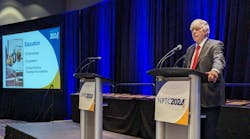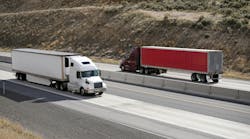California-based Power Air Corporation (www.poweraircorp.com) recently announced that it has joined the Zinc Energy Storage Technology (ZEST) Consortium that was formed last year to develop the technology and the market for zinc-based energy storage devices that may be used to power hybrid vehicles from cars to trucks and buses.
The company develops, manufactures and markets commercial products based on the zinc-air fuel cell and recycling technology developed at the U.S. Department of Energy’s Lawrence Livermore National Laboratory, for which it holds a license.
“Zinc is the alternative energy storage solution of the future,” observed Remy Kozak, president & CEO of Power Air, in a press release announcing the affiliation with ZEST. “ZEST is a new consortium that shares our vision of moving away from fossil fuel, and we look forward to working with the other consortium members to make zinc fuel supply and recycling available to end users worldwide.”
The fuel cell developed by Power Air uses a combination of atmospheric oxygen and zinc pellets in an electrolyte to generate electricity. The by-product is zinc oxide, which can be recycled and reused.
According to a report in Green Car Congress (www.greencarcongress.com), ZEST is initially focusing on the electric vehicle market in Asia, with a bid to acquire at least part of the contract to supply a fleet of 1,000 environmentally clean buses China has pledged to deploy for transporting athletes to and from events at the 2008 Olympic Games.


